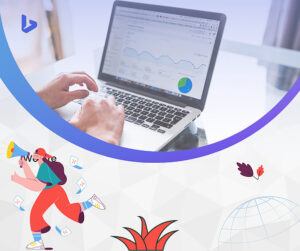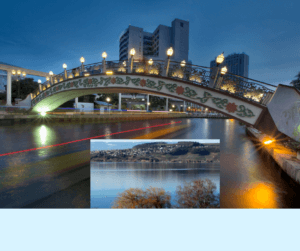The internet is like a giant, invisible web that connects millions of computers all over the world. Imagine you have a huge spider web, and each point where the threads meet is a computer. These computers can talk to each other, share information, and help us do many amazing things.
 We can access many resources through this intricate network, from educational materials and entertainment to social connections and professional tools. It’s like having a library, a theater, a marketplace, and a meeting room all at our fingertips.
We can access many resources through this intricate network, from educational materials and entertainment to social connections and professional tools. It’s like having a library, a theater, a marketplace, and a meeting room all at our fingertips.
The internet has revolutionized how we communicate, breaking down geographical barriers and allowing us to connect with people from diverse cultures and backgrounds. We can learn new languages, explore different perspectives, and collaborate on projects with anyone, anywhere in the world.
Moreover, the Internet is a platform for creativity and innovation. Artists, writers, musicians, and creators can share their work with a global audience, receive feedback, and find inspiration. Entrepreneurs can launch businesses, reach customers far and wide, and drive economic growth.
However, it’s important to use the internet responsibly. Just as a spider web can be delicate and easily damaged, the integrity of our online interactions relies on respect, honesty, and security. By fostering a positive digital environment, we can ensure that the internet remains a powerful tool for connection, learning, and growth for future generations.
With all its benefits, the internet also comes with its challenges. Cybersecurity threats, misinformation, and privacy concerns are some issues that users must be vigilant about. Protecting personal information and verifying the credibility of sources are vital practices to navigate the digital world safely.

Parents and educators are crucial in guiding young users to understand the potential risks and cultivate healthy online habits. Teaching digital literacy and critical thinking skills can empower the next generation to make informed decisions and contribute positively to the online community.
In addition, as technology continues to evolve, so does the internet. Innovations such as artificial intelligence, virtual reality, and the Internet of Things are expanding the boundaries of what we can achieve online. These advancements promise even greater convenience and interconnectivity but require us to stay informed and adapt to new ethical considerations.
Ultimately, the internet reflects humanity’s collective knowledge, creativity, and ambition. We can harness its power to build a more connected and informed global society by embracing its potential with a mindful approach. Whether it’s through fostering meaningful connections, driving innovation, or accessing knowledge, the internet remains one of the most transformative tools of our time.
Environmental sustainability is another critical consideration. The digital infrastructure that supports the Internet, including data centers and networks, consumes significant energy. Exploring green technologies and sustainable practices within the tech industry can reduce the environmental footprint of our digital activities.
In summary, the internet is a technological marvel and a dynamic and evolving ecosystem that mirrors our society’s strengths and challenges. We can harness its full potential to create a brighter, more connected future by approaching it with respect, responsibility, and a forward-thinking mindset.
The Multifaceted Importance of the Internet
- Global Connectivity: The internet has shrunk the world, allowing us to effortlessly connect with people across continents. This connectivity fosters international relationships, cultural exchange, and global collaboration, bridging gaps that once seemed insurmountable.
- Information Access: One of the most significant advantages of the internet is the vast amount of information available at our fingertips. From academic research to the latest news, the internet is a comprehensive repository of knowledge, enabling individuals to educate themselves on virtually any topic of interest.

- Economic Impact: The Internet has revolutionized the global economy by enabling e-commerce, remote work, and digital marketing. Businesses can reach a global audience, small entrepreneurs can start online ventures with minimal investment, and employees can work from anywhere worldwide, increasing productivity and work-life balance.
- Educational Opportunities: Online learning platforms and virtual classrooms have democratized education, making it accessible to people regardless of their geographical location or socioeconomic status. Students can take courses from prestigious institutions, learn new skills, and earn certifications to enhance their career prospects.
- Social Interaction: Social media platforms have transformed how we interact with friends, family, and strangers. They provide a space for sharing experiences, celebrating milestones, and engaging in meaningful conversations. While there are concerns about privacy and mental health, maintaining social connections and building communities is a significant benefit.
- Innovation and Creativity: The internet is a fertile ground for innovation and creativity. Artists, writers, musicians, and creators can share their work with a global audience, receive feedback, and collaborate with others. Platforms like YouTube, Instagram, and TikTok have created new entertainment and artistic expression forms.
- Health and Wellbeing: Telemedicine and online health resources have made healthcare more accessible. Patients can consult with doctors remotely, access medical information, and manage their health through apps and online tools. This is especially beneficial for those in remote areas or with mobility issues.
- Civic Engagement: The internet has empowered citizens to engage more actively in their communities and global issues. Online petitions, social movements, and platforms for political discourse have given people a voice and the ability to advocate for change. Information about government policies, voting, and civic responsibilities is more accessible than ever.

In conclusion, the internet is an indispensable tool that has transformed various aspects of our lives. While it brings numerous benefits, it also presents challenges that must be managed responsibly. The key lies in leveraging its potential for positive impact while addressing cybersecurity, the digital divide, and ethical use. The internet’s role in shaping our future is undeniable, and its multifaceted importance continues to grow as technology evolves.
